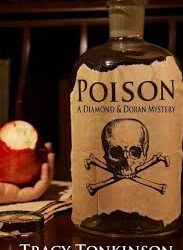A Botswana-based company says it is exploring the possibility of establishing a donkey milk value-addition production base in Zimbabwe or, alternatively exporting its products to its eastern neghbour.
The company is called Takuwa Natural Products and was named after David Tanyala Takuwa, a research scientist and specialist analytical chemist at the University of Botswana whose research inspired the company.
In an interview with Chronicle at the 2023 Global Expo Botswana, Takuwa Natural Products operations manager, Taolo Sesupo said:
We focus mainly on donkey milk products and natural herbs. For now, we are into soaps and cosmetics.
In recent years we’ve had huge interest in our products from different countries including Zimbabwe and South Africa.
We have more requests on our website and social media to expand supplies to Zimbabwe.
So, we want an investor or someone who can partner with us to actually make the products in Zimbabwe or export them locally to Zimbabwe.
Should we find the raw materials in Zimbabwe, we can actually open another plant there to cater to the market in Zimbabwe and beyond.
We started our research around 2016 and did it for about two years as trial and error. We initially produced soap that didn’t have other properties and that’s why we later incorporated elements like crude aloe, and avocados so that we increase the nutritional content of the product.
We did this with technical assistance from Dr Takuwa from the University of Botswana hence we named the products after him as a way of honouring him or praising him for the assistance he rendered.
Sesupo stated that recent research studies suggest that donkey milk has wider natural health attributes. He said:
Research has shown that our donkey milk products work well on all skin types across races as they boost immunity.
Donkey milk has a higher nutritional value such as amino acids and omegas, which are good for the cardiovascular system as well as iron, calcium and potassium.
These show that donkey milk has higher qualities that can help the body to be strong against common skin conditions.
While in Zimbabwe it is generally considered taboo to consume donkey milk, research has shown that the product is highly nutritious and contains essential nutrients such as vitamins (particularly vitamins A, B, C, and E), minerals (including calcium, magnesium, and phosphorus), and fatty acids.
Source Pindula News












